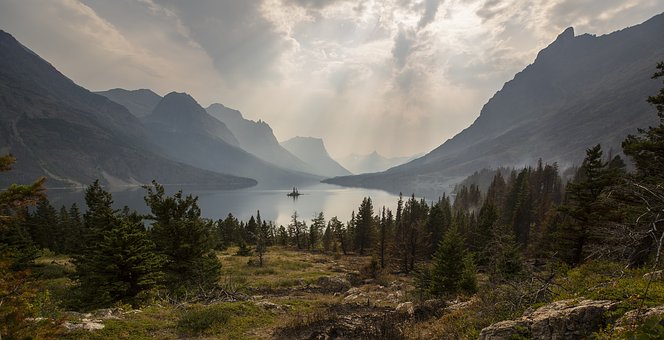Malcolm North, a fifty-five-year-old anthropologist, believed all humans would choose to live in a fair and equal society. He knew professors at universities who were seeking a better society than the one they currently lived. Malcolm had inherited land in Montana, outside the Makoshika State Park. It was the Badlands. Malcolm had spent lovely, sun split summers there. He emailed his colleagues and friends.
Fourteen responded and eleven made the leap to quit their jobs and moved to Montana. There was a house and a shed and Malcolm began construction on more houses. All the houses were situated in a circle facing each other. It didn’t afford privacy but community. All twelve Utopians considered themselves rational and idealistic. They wanted a society free of brutality and nonsense.
Jessica, a former sociology professor, fell in love with Bryce, a former physicist from San Diego. They had sex for three months and then he began an affair with Ursula, Malcolm’s wife. What ensued was a feverish exchange of partners, jealousy, and anger. The men began to fight with each other and the women retreated until April, a former marine biologist from Florida, physically attacked Jessica.
“You’re the cause of this turmoil,” she yelled as her arm crashed down on her head.
Jessica shook her head. “It was just sex.”
April seethed. “We’re building a perfect society here. You can’t have sex with whomever you like. There are rules.”
Jessica, crying, looked confused. “What rules? I can have sex with whoever I like.” Jessica then ran. The women caught her and tied her with rope. She was brought to Bryce. Bryce had secured power in the community by getting Malcolm to defer to him.
Bryce shrugged at Jessica. “She should die.”
Jessica screamed. “I’m pregnant.” Jessica was kept under house arrest for the duration of her pregnancy. Meanwhile, three other women became pregnant. Bryce believed he was the father of all the children. When Jessica gave birth she was led into a field and shot. The Utopian community became strict and oppressive. Nearly everyone was afraid of leaving for fear they would be hunted down and shot. Bryce became a leader in a society that initially rejected leaders.
April retreated into her thoughts. She felt sorry for Jessica even though she had reacted strongly to her months ago. April, watching one morning as the men dressed for a hunt, believed the flaw in their community was that everyone was American, born and raised. All came from a culture heavy with power and inequality despite an old document declaring otherwise. April thought of her options. If she left she would be hunted and killed. If she stayed she would be raped, impregnated, and her child would be community property. April thought of another option. In early America, a woman could escape Puritan society by becoming a witch and that made April hopeful. She would become one. Act mad and leave the society. Live on the fringes. Strikeout when it was beneficial. Maybe kill a child. She would be the society’s monster. It didn’t entirely suit April’s personality, however, it did offer freedom of sorts.
So April became a witch. I met her at the bottom of a mountain three years ago. She told me her story.
“You know,” I said. “All of you could have left at any time. The larger society would have prosecuted most of you. Child services would take the children.”
April stared at me with depthless dark eyes. “You can’t escape what you create. Who you are.”
I suppose she was right. My phone bleeped. It was a New York Times notification. Another gun massacre occurred. Oregon this time. That makes six for the year. What could I do? It was simply my society.
[amazon_link asins=’1946496251′ template=’ProductCarousel’ store=’200wordshort-20′ marketplace=’US’ link_id=’43e1e7a9-2ed5-11e8-959a-a12e54e06585′]
